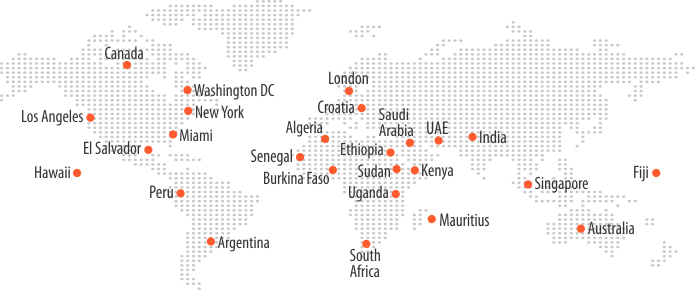EPABX vs. VoIP PBX: Which is the Right PBX for Your Business?

Communication is essential to any organization’s success in today’s fast-paced corporate world. For communication with customers, partners, and employees, a dependable and effective phone system is crucial. Businesses have long relied on Private Branch Exchange (PBX) systems to manage their phone lines. However, as VoIP solutions and technology developed, the PBX changed, with more recent VoIP-based systems taking the place of more antiquated copper wire-based ones.
Business phone systems come in two different varieties: EPABX and VoIP PBX or IP PBX. While IPPBX employs VoIP, EPABX requires copper cables. In order to assist you in selecting which system is best for your organization, let’s compare the two systems. Systems like EPABX are more established and have been around for longer. Despite having greater functionality than IP PBX systems or VoIP PBX systems, they are often more expensive. Modern IP PBX systems employ VoIP technologies. They are more scalable and often less expensive than EPABX systems.
Understand What’s EPABX
Private Branch Exchanges (PBXs) such as EPABXs (Electronic Private Automatic Branch Exchanges) link internal phone lines within an organization and route incoming and outgoing calls. In particular small- to medium-sized enterprises, EPABX systems are still employed today as they were in the past.
For the transfer of voice signals between phones and the PBX system, EPABX uses copper lines. The system then directs the calls to the appropriate individual within the organization. To enable the business to place and receive calls from outside, EPABX systems can be linked to the Public Switched Telephone Network (PSTN).
A variety of functions, including call forwarding, conference calling, and voicemail, can be included with EPABX systems. The extensive functionality and scalability of EPABX systems are constrained when compared to more recent VoIP-based PBX systems. Due to the constraints of the copper wire network, it may be challenging to expand as a business expands, and it can also result in lower call quality.
What’s IP PBX or VoIP PBX?
An IP PBX system, also referred to as a VoIP PBX system, does not use analog phone lines to link phones within an organization. Instead, it transmits voice and data through a company’s network using internet protocol (IP). IP PBX systems, as opposed to conventional copper wire-based PBX systems, use the internet to link phones and route calls, offering a more effective and affordable communication option.
It can be accessed using a graphical interface or dashboard and runs through the Internet, making it easier for administrators to maintain. Furthermore, an IP PBX system’s application programming interface (API) enables it to be integrated with other crucial software and apps that an organization may utilize.
As the organization scales up its business, IP PBX systems are easily expandable to provide high scalability. Additionally, they provide a vast array of sophisticated capabilities, like voicemail to email transcription, conference calling, and call routing. Desktop phones, softphones, and other devices can all be utilized with IP PBX systems.
Finally, we understand the two PBX systems on a fundamental level. To help you decide, let’s start with a full comparison.
Tech Aspect
IPPBX systems use internet protocol (IP) technology to transport voice and data through an organization’s network, unlike EPABX systems, which use copper wire technology to transmit voice signals between phones and the EPABX system. Although EPABX systems have been around for a while and are widely established, their technology isn’t very advanced or scalable. IPPBX systems, in comparison, are more recent and provide more sophisticated capabilities, scalability, and flexibility.
Scalability
When a business has to scale up or expand, EPABX systems often require the addition of new physical gear and infrastructure. In contrast, as IP PBX systems are software-based and readily scaled up or down, they are more adaptable and ultimately less expensive. The ability to easily add new lines and services is a key component of the scalability of IP PBX systems, which is made possible by VoIP solutions.
Advanced capabilities
Although both EPABX and IP PBX systems provide essential functions like call forwarding and voicemail, IP PBX systems provide a greater range of advanced functionality. Auto-attendant, call routing, and voicemail-to-email transcription are a few of them. VoIP solutions make it possible to add innovative capabilities, enhancing the productivity and effectiveness of IP PBX systems for contemporary businesses.
Cost
As EPABX systems rely on solidified copper wire technology, they can be less expensive upfront. However, over time, the price of upkeep and improvements may rise. However, IP PBX systems may cost more upfront, and their scalability and flexibility result in long-term cost benefits. Since it requires less physical equipment and infrastructure, VoIP solutions significantly contribute to cost savings for IP PBX systems.
Reliability
Since EPABX systems have been in use for a long time and are successful, it is a dependable solution. However, because of their dependency on physical infrastructure, they may experience downtime and poor call quality. On the other hand, IP PBX systems are more dependable since they make use of more resilient and adaptable internet protocol technology. Due to their ability to provide redundancy and backup options, VoIP solutions increase the resilience of IP PBX systems.
Security
Due to their reliance on physical infrastructure that may be subject to hacking and other security risks, EPABX systems are typically thought to be less safe than IP PBX systems. Encryption and other security measures are used by IP PBX systems to thwart hackers. Since VoIP solutions provide encryption and other security measures for voice and data transfer, they significantly contribute to the security of IP PBX systems.
The Bottom Line for EPABX and IP PBX
In a nutshell, EPABX and IPPBX systems each have specific benefits and drawbacks. While IPPBX systems provide scalability and cutting-edge features, EPABX systems are dependable and well-known. However, IPPBX systems that utilize VoIP solutions are now the favored option for many businesses due to the rising demand for flexible and effective communication solutions.
Bankai Group, with its impressive 30+ years of experience and expertise, has been at the forefront of orchestrating and managing a global network of 2,500+ carriers and serving over 120+ technology customers. Our vast experience, industry-leading telecom technology, and customer-centric approach revolutionize the ICT infrastructure to unlock the full potential of clients’ businesses. To assist organizations in achieving their communication objectives, we specialize in offering personalized VoIP solutions. Connect with us to get your hands on our comprehensive VoIP solutions to optimize your communication system.






